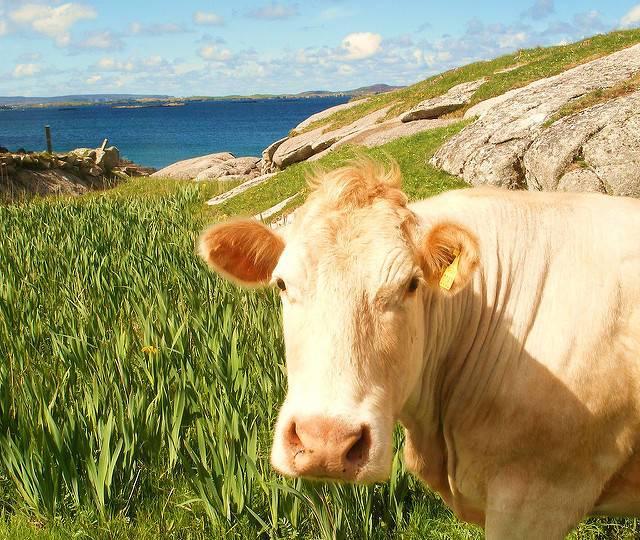
In the global quest to slow down the pace of greenhouse gas emissions, carbon usually scores the most attention. Nevertheless, more companies and governments have also realized they need to consider the impacts of methane, a greenhouse gas that is far more potent than carbon. Recent data suggests methane emissions are spiking worldwide, but who is the culprit? Is the energy sector to blame, due to fracking and its ties to the natural gas boom? Or is this increase largely due to the meat industry?
A recent study suggests that global methane emissions from livestock are even higher than the conventional wisdom would have us believe. The result will impose even more pressure on the meat industry, which in recent years has pledged to become more accountable and sustainable.
According to researchers Julie Wolf, Ghassem R. Asrar and Tristram O. West, methane from cattle and other ruminant (as in having multiple stomachs that make it possible to digest grasses) is an even bigger culprit than what previous studies had concluded. The most prominent study and guidelines to which scientists often refer is one completed by the United Nations' Intergovernmental Panel on Climate Change (IPCC) in 2006.
The IPCC's body of work outlines how enteric fermentation from livestock affects the atmosphere and therefore the world's environment. The IPPC's research is frequently cited by scientists and government agencies, such as the U.S. Environmental Protection Agency (EPA), when they argue that emissions from the world's livestock have a higher carbon footprint than those from the global transportation sector.
But according to Wolf, Asrar and West, the amount of methane emitted in 2011 was actually 11 percent more than what the IPCC had posited long ago. Multiply that difference by estimates suggesting methane is anywhere from 30 percent to 84 percent more potent than carbon, and the math sparks even more concern over the meat industry's total impact on emissions.
Various trends offer theories on why methane emissions may be higher than assumed. Wolf and her colleagues pointed out that larger cows bred in the developing world belch even more methane than their smaller ancestors. And changes in "manure management," as in waste lagoons on feedlots and dairy farms, could also explain the increase in methane emissions.
So is it really high time to ditch the meat and urge citizens to switch to a plant-based diet, the advocates of which have said for years it can curb emissions in the short- and long term? That's debatable: for every study that suggests such a switch should be a no-brainer, others respond that the truth is more nuanced. After all, rice paddies contribute their fair share of methane emissions, as does the entire global agriculture sector.
But even if cows are burping more emissions than what earlier studies and data suggested, that does not necessarily mean other industries score a reprieve, and that is particularly true of the transportation sector, noted Duke University professor Drew Shindell in a recent interview with the Washington Post. “I don’t think this clearly lets fossil fuels, in particular the U.S. fracking boom, off the hook for the growth in methane,” Shindell told reporter Chris Mooney.
Image credit: Liam Maloney/Flickr

Leon Kaye has written for 3p since 2010 and become executive editor in 2018. His previous work includes writing for the Guardian as well as other online and print publications. In addition, he's worked in sales executive roles within technology and financial research companies, as well as for a public relations firm, for which he consulted with one of the globe’s leading sustainability initiatives. Currently living in Central California, he’s traveled to 70-plus countries and has lived and worked in South Korea, the United Arab Emirates and Uruguay.
Leon’s an alum of Fresno State, the University of Maryland, Baltimore County and the University of Southern California's Marshall Business School. He enjoys traveling abroad as well as exploring California’s Central Coast and the Sierra Nevadas.














